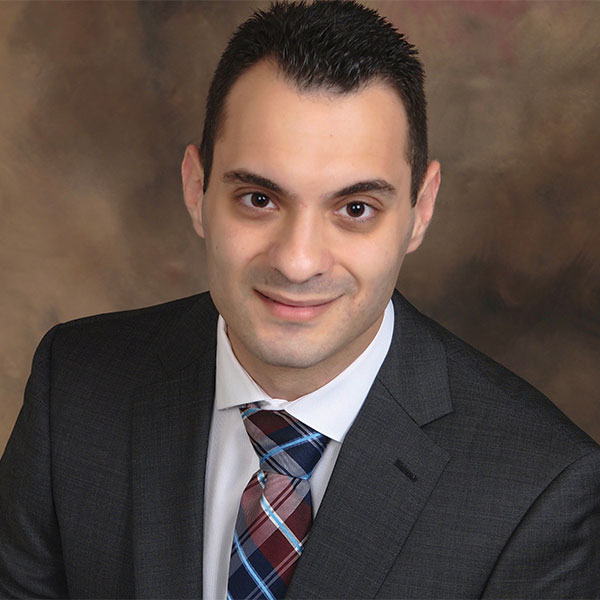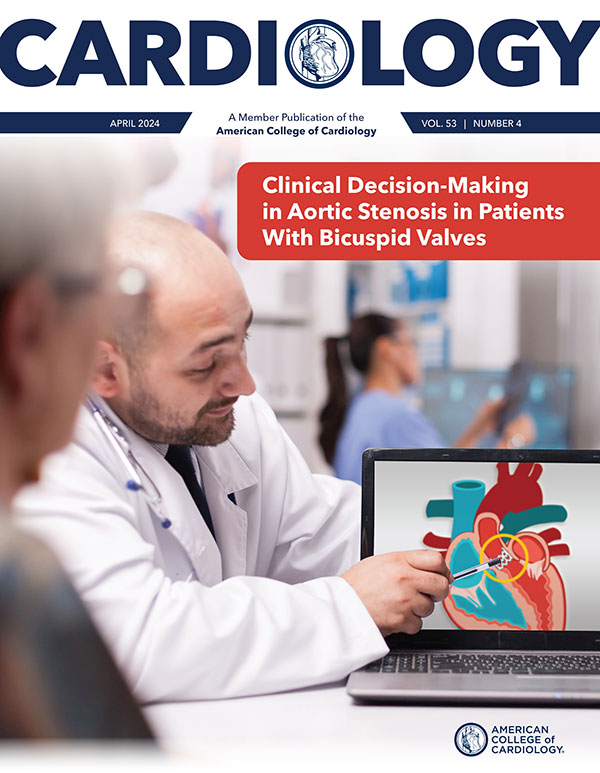Feature | The Overlooked Skill: Integrating Mindfulness Into Interventional Cardiology (and More)

In the fast-paced world of medicine, clinicians navigate complex, high-pressure environments, each with its own unique demands and challenges determined by their roles and specialties. It's not uncommon for clinicians to experience even further stress during their workday, say from interacting with patients and their families or from performing certain tasks and procedures within an intricate, multifaceted environment.
For proceduralists like interventional cardiologists, the demands are particularly intense. They must quickly gather and interpret data, drawing on their knowledge and experience to make timely and critical life and death decisions, as well as perform complex procedural tasks. These responsibilities for the clinician persist even amidst the rigors of long working hours, sleep deprivation and emotional strain. Simultaneously, they are expected to excel in optimal communication with staff who have varying working styles and patients and their families with diverse backgrounds, all the while addressing a significant burden of administrative duties.
In this demanding landscape, it's crucial for interventional cardiologists – in fact all clinicians – to maintain mental preparedness and presence. The mindfulness that comes from the practice of meditation can be an effective strategy for gaining this mental focus and calmness and overall well-being. Meditation and other mindfulness practices are gaining increasing popularity within organizational initiatives aiming to reduce occupational stress, promote workers wellness and reduce burnout. How can the skill of mindfullness help you as an interventionalist? One, by concentrating the physician's attention on the task at hand, meditation decreases mind-wandering and possible preoccupation with an ideal outcome or feared consequence.
What is Mindfulness?
Previously found to be a useful addition to the lifestyle of physicians in other specialties like surgery and obstetrics and gynecology, meditation can represent a valuable tool in the hands of interventional cardiologists not only as a relaxation and wellness technique but also a method to optimize necessary cognitive processes at the cath lab table.1-4
Meditation is a mental practice that enhances attention, awareness and thought control. It incorporates various methods but often centers on focusing on a single part of the body or body process, like breathing, along with a judgment-free surveillance of the flow of thoughts and emotions.
An Eastern practice historically tied to spirituality in Hinduism and Buddhism, the practice of meditation is thought to date back to as early as 5000 BCE, and in the Western world it has expanded beyond religious purposes. Research on the clinical benefits of meditation began in the 1950s. As favorable evidence of its benefit has accumulated, the slow, skeptical start has accelerated and expanded in recent years.5
Still, the benefits of meditation have not been fully characterized, given factors such as suboptimal trial design, subjectivity of studied outcomes and wide heterogeneity in the meditation exercises studied. Some of the physiologic and psychologic effects of meditation have been described by some studies, but its cognitive advantages remain underrecognized.6,7
Click here to learn more about mindfulness and find a practice that works for you. Want more? Search your app store to get started on a regular practice.

Wondering about the importance of being fully mentally engaged when we interventionalists are working at the cath table? Just remember the last time your coronary wire was accidentally withdrawn or the time you pulled an overdue ACT. The practice of mindfulness can be a great advantage in redirecting the focus on what's most important at every stage of a procedure, as shown in a study of surgeons.8
Two, meditation enhances physicians' awareness of themselves, their staff's behavior during a case, and subtle subjective and objective signs that may arise from their patient. It promotes a state of alertness and self-regulation which subsequently facilitate a more efficient and timely response to situational changes.9
Three, the practice of meditation encourages a practice of patience – a skill that's crucial for every interventionist – and every clinician. Patience is the attribute we conjure when we're faced with multiple catheter exchanges, we need to advance the IVUS catheter one more time to confirm optimal stenting or we deal with a calcified challenging lesion, for example.
Four, the exercise of thought monitoring assists with stress control. The atmosphere in the cath lab can change from quiet to stressful in seconds. Dealing with unpredictable situational alterations and rapidly decompensating patients requires the physician to maintain full recognition of their emotional state while operating to prevent stress from taking control over their state of mind and subsequently their decisions and performance.
Exercising these techniques while performing a procedure may help in mitigating the human factor in medical errors and fostering patient safety and quality control in our labs.9
In the training of interventional cardiologists, education on identifying and remedying cognitive biases and lifestyle challenges is often overlooked. Now may be the time to expand the training and expected skillset at graduation to include mindfulness and metacognition – an individual's familiarity and knowledge of their thought processes.10
Performing lifesaving procedures while navigating a complex health care system is both a privilege and great responsibility on the shoulders of all clinicians. Minimizing distractions, boosting psychological preparation and reinforcing one's own emotional control through strategies like meditation are all essential metacognitive tools to add to an interventional cardiologist's skill arsenal.

This article was authored by Kinan Kassar, MD, FACC, an interventional cardiologist and director of the structural heart disease program at the Genesis Healthcare System in Zanesville, OH.
References
- Capodici A, Sanmarchi F, Golinelli D. Effects of meditation for surgeons: A systematic review of the scientific literature. Ann Surg 2022;275:1074-7.
- Safran T, Vorstenbosch J, Doty JR, Davison P. Unlocking performance excellence: Review of evidence-based mindful meditation. Plast Reconstr Surg 2022;150:903e-908e.
- Stephen AE, Mehta DH. Mindfulness in surgery. Am J Lifestyle Med 2019;13:552-5.
- Allen R, Robinson A, Allen S, et al. Designing meditation for doctor well-being: Can 'Om' help obstetrics and gynaecology doctors? Australas Psychiatry 2020;28:342-7.
- Ross A. How Meditation Went Mainstream. Time; March 9, 2016. Available here.
- Cohen C, Pignata S, Bezak E, et al. Workplace interventions to improve well-being and reduce burnout for nurses, physicians and allied healthcare professionals: a systematic review. BMJ 2023;13(6):e071203.
- Kim DY, Hong SH, Jang SH, et al. Systematic review for the medical applications of meditation in randomized controlled trials. Int J Environ Res Public Health 2022;19:1244.
- Chen H, Liu C, Zhou F, et al. Focused-attention meditation improves flow, communication skills, and safety attitudes of surgeons. Int J Environ Res Public Health 2022;19:5292.
- Liu C, Chen H, Cao X, et al. Effects of mindfulness meditation on doctors' mindfulness, patient safety culture, patient safety competency and adverse event. Int J Environ Res Public Health 2022;19:3282.
- Chick N. Metacognition. 2013. Vanderbilt University Center for Teaching. Retrieved 01/07/2024. Available here.
Clinical Topics: Cardiovascular Care Team, Prevention, Stress
Keywords: Cardiology Magazine, ACC Publications, Mindfulness, Burnout, Psychological, Meditation, Communication, Occupational Stress

